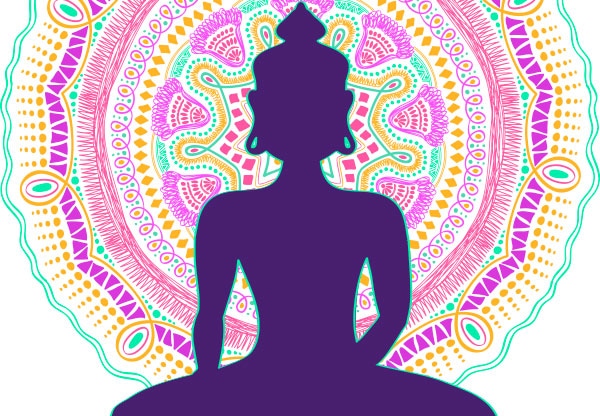Life
Karma Sutra Our Karmic Ledger

Our rational knowledge is based on conditional truth, whereas our intuitive wisdom helps us see beyond the manifested world.
Punishment, we are taught, is the consequence of bad behavior. We are punished in school for disobedience, at home for mischief and of course society incarcerates us for misconduct. So, when we suffer for no apparent reason, it’s only fair to feel resentment. As our life proceeds, we observe that contrary to what we are taught and subjected to punishment for misconduct, the world around us seems to be working on very different principles.
People who are mean and selfish seem to be flourishing and enjoying life, while people who are hard-working and sincere are exploited and troubled. In light of this unfair paradox of life, we question the very basis of morality. What good is being good, when those with a sense of morality suffer and the immoral flourish? Like Draupadi (the wife of the five Pandava brothers in the epic Mahabharata) we moan, “When I see noble, moral and modest persons harassed in this way and the evil and ignoble flourishing and happy, I stagger with wonder. I can only condemn the Placer, who allows such outrage.” (The Difficulty of Being Good, Gurcharan Das)
Draupadi’s lament surges out of the intricacies of her life, just as our grouse surfaces from our individual experiences. But if this contradiction were true then social order would have collapsed. The fact that goodness has survived must have a basis.
The human mind is capable of two kinds of knowledge, the rational and the intuitive. Our rational knowledge is based on conditional truth, whereas our intuitive wisdom helps us see beyond the manifested world. People tend to take things at their face value and remain ignorant of how nature works.
Samsara, the universe of manifested existence, is a play of energy. This energy works on the principle of cause and effect. It asserts
that every action produces its necessary reaction. All of the actions that we perform in the world are governed by this principle. According to Sri Aurobindo, the Indian thinker: “The meaning of karma is that all existence is the working of a universal energy and as is the nature of energy put forth as cause, so shall be the energy which returns as effect. This is the universal law and nothing in the world can, being of and in our world, escape this governing incidence.”
Hence, our actions, good or bad, act as “causes,” which eventually return to us as “effects,” good or bad. This syndrome, also known as the Law of Karma, is an innate property of the universe. The actions that we perform bind us to its consequence and this obligation to experience the consequence of our actions creates a debt between the doer and his deed.
This debt is known as the karmic debt (rnanubandhan or karmanubandhan).
Our good actions earn us karmic credits and our bad actions create karmic debits. Since these transactions take time to work themselves out, nature arranges for us to be born again to work out our pending karmic dues. When we die and are reborn we carry with us our karmic heritage.
According to Indian mythology, Chitra Gupta is the keeper of our karmic account. As the assistant of Yama, the god of death, he prepares our balance sheet and readies us for our next birth. The process by which our karmic debts are settled is through rebirth, also known as reincarnation.
The concept of reincarnation, which is an integral part of almost all Indian philosophies, is also used to explain incurable diseases and congenital deficiencies. Our karmic balance sheet generates an appropriate milieu and creates circumstances, where these transactions can work themselves out. Throughout our life we are automatically drawn to people, places and things with whom we have karmic debts to settle. Although we physically share earth space and earth time, our karmic heritage creates for us individual universe of experience. But our current reality is only a part of our reality. It has the potential for us to create our future destiny.
All the actions that we perform get accumulated in the ethereal world, the world of cause and effect. This sum total of our “heaped together” karma is known as sanchita karma. Part of it is set in motion (prarabdha karma) for us to experiencein a particular life. This is what is termed as fated (misfortune) or pre-destined (fortune). It is fixed (dridha) in nature.
As creatures of awareness gifted with the faculty of reason, we have a choice to either accept what is fated or fight it. Our choice of response is the karma we make by exercising our free-will. This is known as kriyamana karma or karma being made in the present moment. These choices go on to create our future destiny, the aagami karma or the arriving karma.
Let us not use other people’s karmic credits to justify our bad behavior. A Tamil woman summed it up most aptly:
“We are punished not for our actions, but by our actions.” Ignorance to this law does not abdicate us of its consequences; instead the knowledge of its working saves us from its dire consequences. Let us use our free will to create our destiny, rather than become further entangled in our karmic cesspool.
The next time you see evil flourishing and the good suffering, we know that they are only reaping their karmic credits. By the time their current actions catch up with them, the wheel of fortune would have turned and a new story will be born.

You must be logged in to post a comment Login